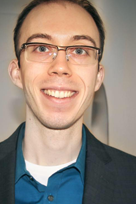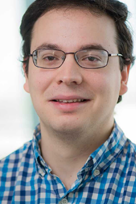Comparative Literature, Biological Sciences, Computer Science and Classics; Mentors - Michelle Warren, Mark McPeek, Saeed Hassanpour and Margaret Graver
Joseph has broad research interests that span both the humanities and the natural sciences. His main interests in computational biology are the development of mathematical models that capture the collective, systems-level properties of metabolic and signaling networks, and predictive analytics for high-dimensional clinical data. Dexter's humanistic research focuses on quantitative literary criticism, especially as applied to classics and the profound influence of Greek and Latin authors on subsequent culture.
He has a Ph.D. in the Department of Systems Biology at Harvard Medical School and co-founder and co-director with Pramit Chaudhuri of the Quantitative Criticism Lab. At the Quantitative Criticism Lab he has been working on diverse problems at the intersection of literature, computation, and biology. Particular interests of the group include the development of enhanced computational methods to support literary criticism and intertextual profiling (often drawing on techniques from bioinformatics), elucidation of authorial, generic, and temporal stylistic signatures using machine learning, and cultural evolutionary studies of literature.

